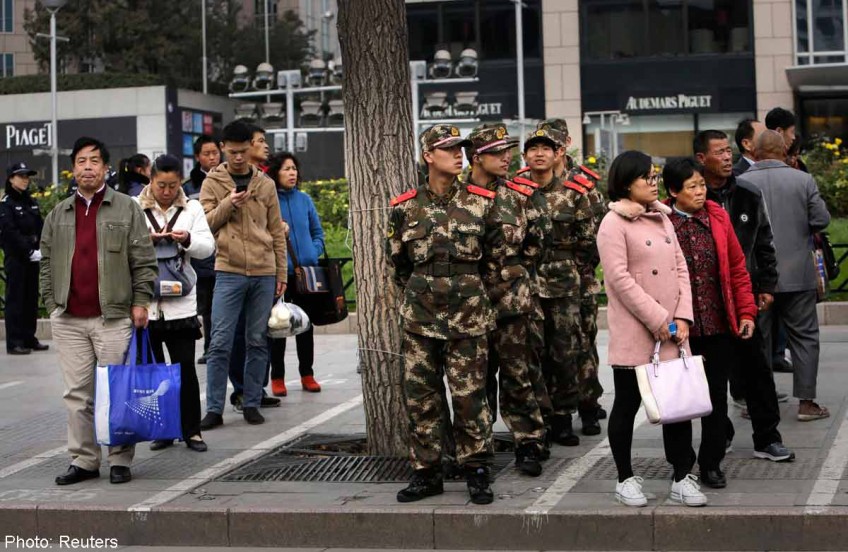Approval for Apec almost doubles in a year

It's a 25th anniversary gift worth cheering over.
Approval for the Asia-Pacific Economic Cooperation (Apec) grouping almost doubled from a year ago, in the light of increasingly positive sentiments from South-east Asia, a survey showed. The good news comes amid concern that the 21-member grouping may be losing relevance compared to other regional architectures such as the G20.
The survey showed some 61 per cent of respondents agreeing that "Apec is as important or more important today" than in 1989, when it was established.
This is almost double last year's 35 per cent approval rating for it, halting a decline since 2007 when the annual survey by the Pacific Economic Cooperation Council (PECC) began.
This turnaround was especially stark for South-east Asia's policy community, which gave Apec a 54 per cent approval rating as compared with 26 per cent last year. Those with negative perceptions shrank to 16 per cent from 25 per cent.
Indonesia's hosting of the Apec summit last year could be a reason for the shift as it helped raise the grouping's profile in South-east Asia's most populous economy, the PECC report said.
A strong emphasis on infrastructure in last year's agenda is also crucial as it is of great concern to emerging economies in the Asia-Pacific, especially those in South-east Asia, it added.
Said PECC's secretary-general Eduardo Pedrosa: "While developing countries believed that trade liberalisation was important for them and their future growth, they realised they lacked the infrastructure to truly benefit from globalisation and integration."
He noted that the connectivity agenda Apec adopted last year was meant to address these constraints.
Said PECC's co-chair Jusuf Wanandi: "Since the Asian financial crisis, there has been a prevailing feeling that while we recognised the importance of the idea of Apec, the agenda was not quite relevant for ASEAN members.
"After 1997-1998, new institutions like the East Asia Summit and the Chiang Mai initiative were established, rather than turning to Apec," he added.
But views are split among the some 600 respondents - government officials, businessmen and academics - on how the proposed Free Trade Area of the Asia-Pacific (FTAAP), which tops the agenda at the Apec summit in Beijing, can be achieved.
Some 46 per cent felt that the United States-led Trans-Pacific Partnership (TPP), which excludes China, is the best pathway, while 42 per cent preferred the Beijing-backed Regional Comprehensive Economic Partnership (RCEP), which leaves out the US and Japan.
The process of achieving the FTAAP is also complicated by the members it eventually includes, the report said. The RCEP and TPP, which have overlapping memberships, face strong political and social opposition in many economies despite potential benefits.
Efforts to integrate them depend on cooperation between the two largest economies, the US and China, it added. The survey, conducted from July 31 to Sept 5, also found that 65 per cent felt the FTAAP should include all members of the TPP, RCEP and also the Pacific Alliance, a Latin American trade bloc.
Said PECC's co-chair Don Campbell: "Although Apec is not a platform for trade negotiations, it clearly has an increasingly important role to play in facilitating the preparation work and efforts towards materialising an FTAAP."
esthert@sph.com.sg

This article was first published on Nov 8, 2014.
Get a copy of The Straits Times or go to straitstimes.com for more stories.